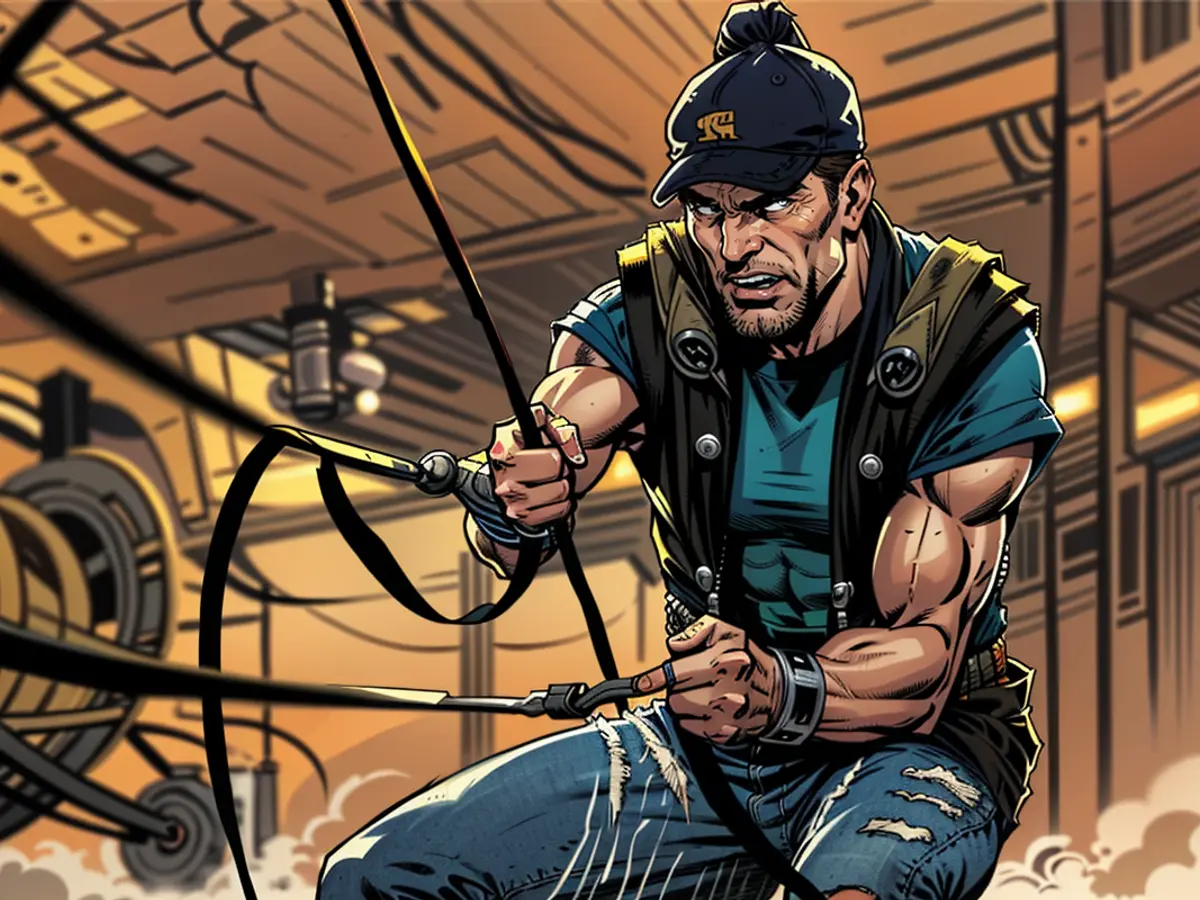Series on Amazon Prime - Those About to Die
"Those About to Die" is the name of the new Amazon series set in the Roman Empire era. A must-see for "Rom" fans and better than anticipated, despite Roland Emmerich's bombastic directorial reputation. Emmerich is known for his wooden hammer-like direction, thankfully absent here.
The series takes place during the Flavian dynasty, a period that hardly needs to say anything to most viewers, as they left behind the world's most famous Roman structure: the Colosseum. During the series, the Oval of the Colosseum is still being built by Jewish slaves. The entertainment the emperors provided for the people took place in the Circus Maximus, primarily a horse racing track. Here, two worlds collide: the aristocrats and the imperial family in the light, and the unstable masses in the shadows, craving entertainment. Below them, in the semi-darkness, are those whose lives are intertwined with the entertainment industry. The animal handlers, betting booths, stables. The Circus revolves around the charioteers, the horses, and the money and influence that can be gained from the races.
Gladiators have a supporting role in "Those About to Die"
Despite the title, gladiators play a secondary role in the entertainment. On the race track, the masses, the lower class, patricians, and the imperial family come together. He who controls the games rules the city.
The plebeian Tenay, played by "Game of Thrones" villain Iwan Rheon, is the owner of a betting booth, yearning to rise from the bottom to the top. Caesar's son Domitian (Jojo Macari) must secure his position over his brother Titus, the powerful general, with the help of the Circus. The tension between the imperial family and the city's criminals forms the backbone of the series, with a motley crew of characters. Among them are Cala, the Numidian woman, consumed by worries about her children who have been enslaved. Scorbus, the arrogant yet sympathetic largest charioteer of his time. Three Iberians who have brought their horses to the capital. Or Antonia, the corrupt and power-hungry patrician.
Slightly Different from the Role Models
Above all, Vespasian (Anthony Hopkins) and his sons stand out. Jojo Macari as the perverse intriguer Domitian and Tom Hughes as Titus, conqueror of Jerusalem and destroyer of the Temple. All three bear little resemblance to their historical counterparts. Especially Tom Hughes seems too young and handsome to play the brutal Titus. After Vespasian became emperor, he kept himself away from violence. Titus was the man for coarse and bloody tasks. And he, in turn, is infatuated with Berenice, the Jewish queen, whose people he subjugated, enslaved, and with whose temple treasure the Flavians built their grandiose buildings.
This is the universe of the series, where everyone fights for their survival in their own way. The emperor's son lives in fear that his brother Titus will discover his intrigues and have him killed. The mother Cala hopes that the touch of a sacred Vestal Virgin will free her enslaved daughter. The unfortunates, who are torn apart by lions, and the patrician whose fortune has been squandered by her gambling husband. Or the creative game master, who wants to entertain his emperor with a group rape of slaves by lustful apes. A labyrinth of relationships, interests, and hatred unfolds – almost as complex as in "Game of Thrones"."
For tension, it is provided and also for sex and violence. The series does not indulge in it, but it's different for a youth-free version. Here, a lecherous enemy has his throat slit while he mounts a prostitute. These scenes are brief, more suggested – labeling the series as a Roman porn to describe it is going too far and creates false expectations. Instead, one should rather rewatch the juicy episodes of "Spartacus" or even "Caligula" (1979) by Erotic-Filmmaker Tinto Brass.
The casting and the skillful mix of real-set locations in the near and CGI in the far are impressive. It's fascinating to see how meticulously a simple Roman tenement house was built.
Shadows of History
Lack of historical knowledge does not disturb, however. Caesar, Marcus Antonius, Augustus, and Cleopatra, everyone has heard of them. But the Flavians? In brief: After Nero's disgraceful death, the Julius dynasty ended. It was a bloody year with four emperors, following murders and battles, and the cunning tactician and general Vespasian emerged victorious.
In the power transition from Vespasian to his successor Titus, the main characters – except for the imperial family – are fictional and not historical. And that's why they can do whatever the script pleases. Different, for example, is the Roman series "Domina," which dealt with Livia Drusilla, the wife of Augustus. Here, the informed viewer already knew at the birth of every child how they would die.
"Those about to die" does not reach the solitary heights of success of the HBO hit "Rome" – but which production does? Nevertheless, "Those about to die" ranks at the top in the world of history series.
"Those about To Die" can be streamed on Amazon Prime.
In the series, the Oval of the Colosseum is still being constructed during the Flavian dynasty, with its construction being overseen by Jewish slaves. The entertainment provided for the Roman Empire's citizens took place in the Circus Maximus, a large horse racing track, where two worlds collide and the Circus revolves around charioteers, horses, and the money and influence gained from the races. (Circus, Rom)
The series, set in the Roman Empire era, contains a supporting role for gladiators, focusing more on the lower class, patricians, and the imperial family as they come together on the race track, with he who controls the games ruling the city. (Circus, Roman Empire)








